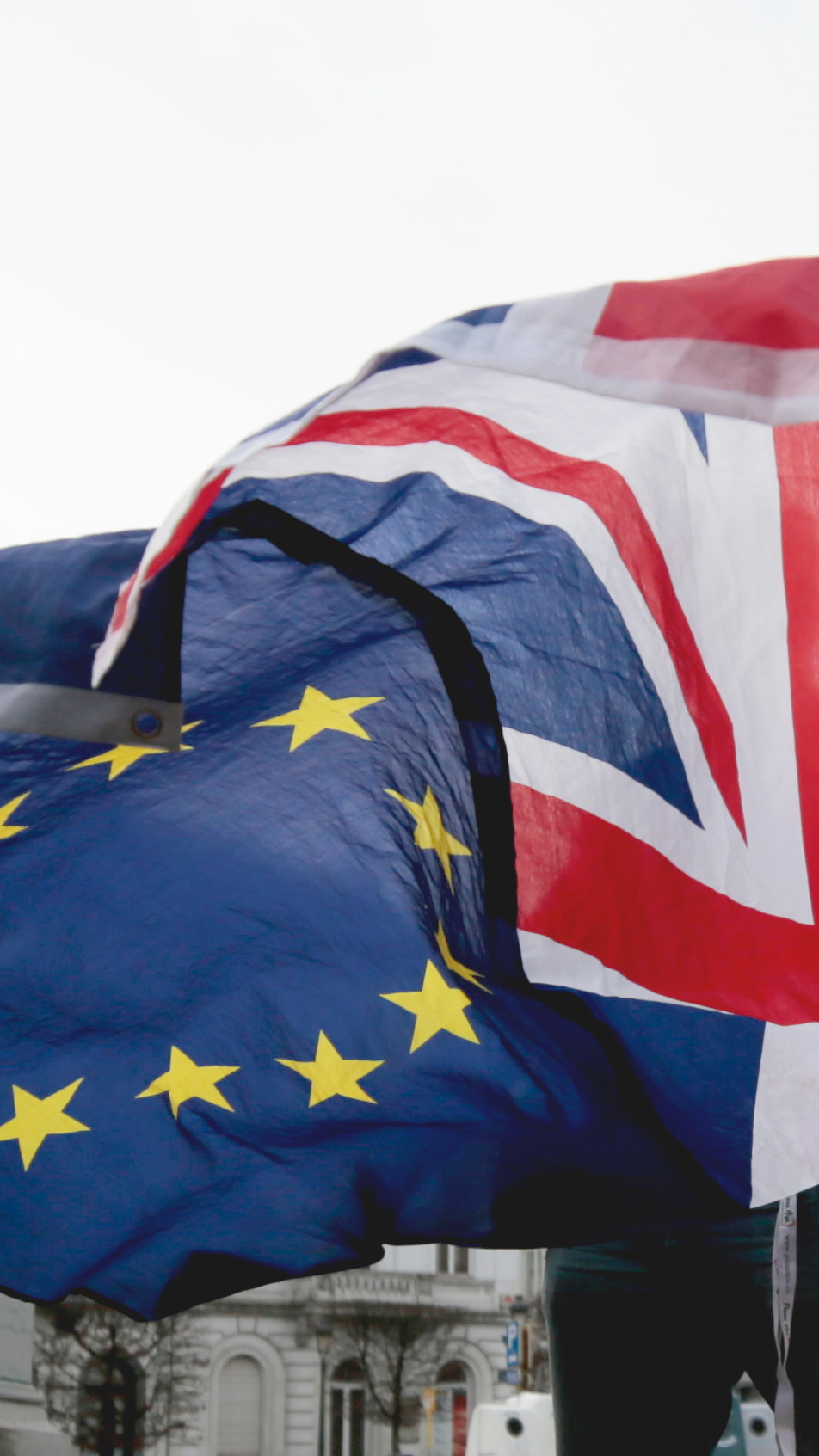03:21

The European Union and the UK are bracing for lengthy negotiations next week as both sides scramble to define future relations post-Brexit.
Brussels and London hunkered down for what may turn out to be an extremely fractious exercise to squeeze the maximum benefits out of each other, especially on trade and commerce. The talks start on 2 March in the Belgian capital.
Ahead of the meeting, the UK unveiled its guidelines for negotiations on Thursday, saying it expected to see a "broad outline of the agreement" in four months, failing which Prime Minister Boris Johnson would be compelled to initiate a sharp break from the 27-nation bloc.
Britain's 30-page mandate insists that "we will not agree to any obligations for our laws to be aligned with the EU's, or for the EU's institutions, including the Court of Justice, to have any jurisdiction in the UK".
Speaking in parliament, cabinet office minister Michael Gove said: "At the end of the transition period on the 31st of December, the United Kingdom will fully recover its economic and political independence."

The UK expects to see a "broad outline of the agreement" by June, failing which Prime Minister Boris Johnson could initiate a sharp break from the 27-nation bloc. Daniel Leal-Olivas/AFP
The UK expects to see a "broad outline of the agreement" by June, failing which Prime Minister Boris Johnson could initiate a sharp break from the 27-nation bloc. Daniel Leal-Olivas/AFP
"We want the best possible trading relationship with the EU, but in pursuit of a deal we will not trade away our sovereignty."
EU ministers had already approved their version of a mandate. The document will form the basis for discussions to be led by the chief negotiator Michel Barnier.
The 46-page dossier - approved by the EU General Affairs Council on Tuesday - says its "envisaged agreement should uphold common high standards, and corresponding high standards over time with Union standards as a reference point".
It adds that the standards should apply "in the areas of state aid, competition, state-owned enterprises, social and employment standards, environmental standards, climate change, relevant tax matters and other regulatory measures and practices in these areas".
Britain was quick to fire a shot across the EU's bow, warning that the latter was backing away from its previous commitment to strike a free trade agreement.

The EU mandate for talks with the UK will form the basis for discussions to be led by the chief negotiator Michel Barnier. Kenzo Tribouillard/AFP
The EU mandate for talks with the UK will form the basis for discussions to be led by the chief negotiator Michel Barnier. Kenzo Tribouillard/AFP
Johnson's spokesman, James Slack, said London was being coerced to make "onerous commitments".
"We will not accept any demands for the UK to follow EU rules, just as we would not expect the EU to accept UK laws," he said.
The greatest challenge for negotiators will be to agree on a binding commitment that won't be perceived as unfair by either party.
Some of the most controversial issues are tariffs, border restrictions and fisheries.
The UK seeks a trade deal similar to what the EU has with Canada. Britain's current trade with the union is now made up of 53 percent of imports and 45 percent of exports. The country will remain part of the customs union and single market until 31 December.
Barnier rejected such a proposition saying that the UK is a neighbor and its potential impact is quite significant.

The UK seeks a trade deal similar to the one the EU has with Canada. Martin Meissner/AP
The UK seeks a trade deal similar to the one the EU has with Canada. Martin Meissner/AP
Brussels also cautioned the Johnson government against custom posts and other obstacles between Northern Ireland and the Republic of Ireland, an EU member.
As per the Withdrawal Agreement, tariffs would get imposed on goods crossing from the UK if they were headed further to Ireland or any other part of the EU.
Irish foreign minister Simon Coveney said if the UK fails to fully implement its border commitment, "it will damage significantly the prospects of being able to get even a bare-bones trade agreement."
Britain has assured that it will refrain from introducing checks and controls at the land border with Ireland.
On fishing, the UK is on a collision course with the EU. Johnson had mentioned that reclaiming British waters was an absolute priority and after the end of the transition period, the UK will take back full control of its maritime border, just like other coastal states.
The EU insists the waters should remain accessible to its boats.

Britain has insisted that it won't introduce checks and controls at the land border with Ireland. Peter Morrison/AP
Britain has insisted that it won't introduce checks and controls at the land border with Ireland. Peter Morrison/AP
"It doesn't matter what the EU puts in its mandate as we become an independent coastal state on December 31, 2020," Slack said.
"Any access by non-UK vessels to fish in UK waters will be for us to determine."
Given the scale and complexity of the talks, the biggest concern is the timeframe. The British want to ink a deal by the end of 2020. The transition period can be extended once for up to an additional 24 months but Johnson has ruled out such a possibility.
The EU, however, is not too optimistic about the deadline.
A series of tough and acrimonious exchanges seems all but inevitable. Dutch Foreign Minister Stef Blok, in his comments, alluded to the same.
"The time pressure is immense, the interests are huge, it's a very complicated treaty, so it will be very hard work."
Remember to sign up to Global Business Daily here to get our top headlines direct to your inbox every weekday